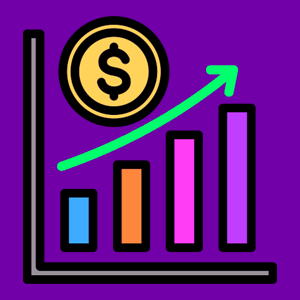 The disconnect between marketing and sales has long been a pain point for businesses, often resulting in misaligned goals, wasted resources, and lost revenue. However, Artificial Intelligence (AI) is proving to be a game-changer, transforming how these two critical functions collaborate. By leveraging AI tools and insights, businesses can foster seamless integration between marketing and sales, driving efficiency, alignment, and success.
The disconnect between marketing and sales has long been a pain point for businesses, often resulting in misaligned goals, wasted resources, and lost revenue. However, Artificial Intelligence (AI) is proving to be a game-changer, transforming how these two critical functions collaborate. By leveraging AI tools and insights, businesses can foster seamless integration between marketing and sales, driving efficiency, alignment, and success.
In this blog, we’ll explore how AI is bridging the gap between marketing and sales teams, from aligning strategies to optimizing customer interactions.
1. Unified Data and Insights
A major source of friction between marketing and sales teams is data silos. Marketing generates valuable insights about leads, while sales focuses on converting them—but a lack of shared visibility can hinder the process.
How AI Helps:
- Centralized Data Platforms: AI-powered tools integrate data from CRM systems, marketing platforms, and analytics tools, providing a single source of truth.
- Customer Journey Mapping: AI tracks and visualizes customer touchpoints, helping both teams understand where leads are in the buyer journey.
- Predictive Insights: AI predicts customer behavior, such as purchase intent or churn risk, enabling better decision-making across teams.
Example: Tools like HubSpot and Marketo offer AI-driven insights to align marketing and sales data, ensuring consistent messaging and strategies.
2. Improved Lead Scoring and Prioritization
Lead scoring has traditionally been a subjective process, often causing disagreements between marketing and sales on what constitutes a “qualified lead.” AI removes this ambiguity by introducing objective, data-driven scoring models.
How AI Helps:
- Behavioral Analysis: AI evaluates lead behavior (e.g., email engagement, website visits, content downloads) to assign scores.
- Real-Time Updates: AI continuously updates lead scores based on new interactions, ensuring sales teams always work with the most up-to-date information.
- Lead Prioritization: AI ranks leads based on their likelihood to convert, helping sales focus on high-value opportunities.
Example: Platforms like Salesforce Einstein use AI to refine lead scoring, improving handoffs between marketing and sales.
3. Enhanced Personalization
Personalization is critical for modern customer engagement, but marketing and sales often struggle to deliver a consistent experience. AI enables hyper-personalization at scale, ensuring leads receive tailored interactions across touchpoints.
How AI Helps:
- Dynamic Content Recommendations: AI suggests personalized content for email campaigns, social media, or direct outreach based on lead preferences.
- Contextual Messaging: AI provides sales teams with insights into lead behavior, enabling more relevant and timely outreach.
- Account-Based Marketing (ABM): AI supports ABM strategies by identifying key decision-makers and tailoring campaigns to their needs.
Example: Drift uses AI to create personalized chat experiences that seamlessly hand off leads to sales reps when appropriate.
4. Streamlined Communication and Collaboration
Miscommunication between marketing and sales can derail even the best strategies. AI-powered collaboration tools ensure both teams are on the same page.
How AI Helps:
- Automated Task Assignment: AI assigns tasks and follow-ups based on lead activity, ensuring smooth workflows between teams.
- Shared Dashboards: AI creates shared dashboards with real-time performance metrics, fostering transparency and accountability.
- Automated Meeting Summaries: AI tools summarize joint team meetings and highlight action items, reducing the risk of missed opportunities.
Example: Gong analyzes sales calls and marketing interactions, providing actionable insights to align team efforts.
5. Predictive Sales and Marketing Alignment
AI excels at identifying patterns and trends that humans might miss. By analyzing historical data, AI enables marketing and sales teams to align their strategies for future success.
How AI Helps:
- Campaign Forecasting: AI predicts the effectiveness of marketing campaigns and suggests adjustments to meet sales goals.
- Pipeline Insights: AI identifies bottlenecks in the sales funnel and recommends solutions, such as targeted content or additional touchpoints.
- Budget Optimization: AI helps allocate marketing and sales budgets effectively, ensuring resources are spent where they’ll have the most impact.
Example: 6sense uses AI to predict which leads are most likely to convert, helping marketing and sales teams align their efforts.
6. Automating Repetitive Tasks
Both marketing and sales teams spend significant time on administrative tasks, which can distract from high-value activities. AI automates many of these processes, freeing up time for strategic initiatives.
How AI Helps:
- Automated Follow-Ups: AI handles email follow-ups, meeting scheduling, and data entry.
- Sales Enablement: AI provides sales teams with ready-to-use materials, such as proposals and pitch decks.
- Campaign Management: AI automates the setup, monitoring, and optimization of marketing campaigns.
Example: Outreach.io uses AI to automate sales workflows, ensuring teams can focus on closing deals.
The Future of AI in Marketing and Sales Collaboration
As AI continues to advance, its role in bridging the gap between marketing and sales will become even more profound. Here’s what the future holds:
- Real-Time Collaboration Tools: AI-driven platforms will enable marketing and sales teams to collaborate seamlessly in real time.
- Voice AI for Sales and Marketing: AI will analyze voice interactions to improve both marketing messages and sales pitches.
- AI-Driven Strategic Planning: AI will help align marketing and sales goals by forecasting market trends and identifying new opportunities.
Conclusion
AI is not just a tool for automation; it’s a bridge that connects marketing and sales teams, fostering collaboration, efficiency, and success. From unifying data and improving lead scoring to enabling personalization and streamlining workflows, AI is transforming how these teams work together.
For businesses looking to stay competitive, investing in AI-powered solutions is no longer optional—it’s essential. By leveraging AI to align marketing and sales, companies can achieve greater revenue, stronger customer relationships, and a more cohesive strategy.
